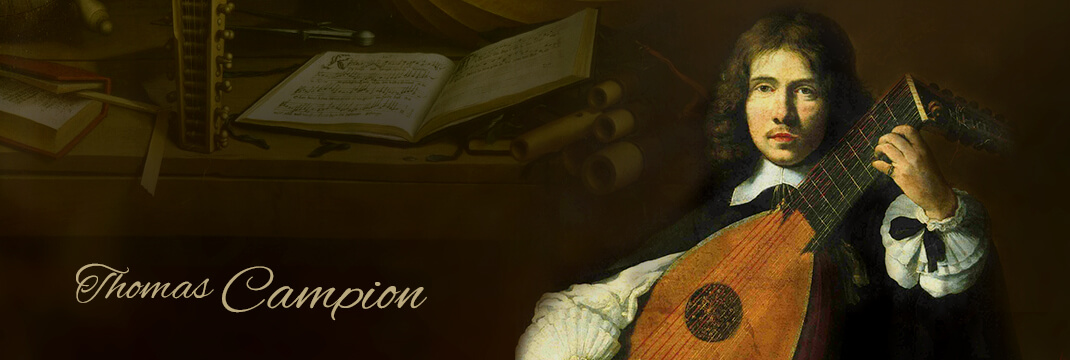
Analysis of Thomas Campion’s Career as a Writer and His Famous Works Based on the Critique Books and Articles
The bibliographic essay represents the analysis of Thomas Campion’s career as a writer, based on the critique books and articles, which explicitly describe the development of Campion’s skills in poetry and songs composing. Thomas Campion was an outstanding person whose life and creations were studied by many critics. The bibliography essay comprises the analysis of information about masterpieces of Thomas Campion and his first steps as a writer. Information for analysis was taken from In Harmony Framed: Musical Humanism, Thomas Campion, and the Two Daniels by Erik Ryding, “In Defense of Campion: A New Look at Ayres and Observations” by Martha Feldman, Thomas Campion by David Lindley, and Thomas Campion: Poet, Composer, Physician by Edward Lowbury, Timothy Salter, and Alison Young. The literature was selected with the aim of highlighting the key issue of the investigation, based on the analysis of Campion’s career and his most famous works Observation and three parts of the Book of Ayres. The analyzed literature explicitly describes Campion’s career as a writer, since every book or article contains specific and unique information.
The analysis of the chosen literature showed that every article and book begins with a short description of the poet’s biography. The critics emphasized that Thomas Campion was a bright representative of non-dramatic literature of English Renaissance, producer of songs, writer of lyric poetry, and perfect composer. In fact, the development of his skills as a writer and composer was his lifelong project. However, the poet did not write for the sake of welfare and recognition. He was a producer of the accomplished oeuvre in poetry and music. The authors of critique books and articles mentioned that Campion’s life was not easy but bright. At an early age, the poet lost his parents, but he never surrendered and studied much. In 1584, Thomas left Cambridge without receiving a degree. In 1586, he was admitted to Gray’s Inn in London to study law (Feldman 238). After 1605, Campion received the M.D. at the University of Caen and began to practice as a doctor.
The second part of every book and article describes the career of Campion as a writer. Apparently, all represented literature described the first steps of the poet. Campion’s first literary works were written in Latin, while later he started to write poems and songs in English. In 1591, Campion published his first works. Moreover, Newman’s authorized edition of Sydney’s Astrophel and Stella contained his five songs. In four years, he published his own book Poema with 129 Latin epigrams. Epigrams were fashionable and close to poems of other young poets. The reason is that they represented the ability of the poet to depict people and surround events with the help of only a few precise lines (Ryding 30). In 1602, Thomas Campion began to write the masques, which were performed at the court of James I. David Lindley emphasized that the masques opened the way for Campion to become closer to the center of country’s artistic elite (46). Thus, he composed for a royal court and enjoyed the advantages of the increasing prestige. The masques became a highly politicized form of the entertainment preferred by the king, thereby reinforcing Campion’s role and status.
The Main Works of Thomas Campion. The authors of the studied literature dedicated the greatest part of their investigation to the analysis of the most famous works Books of Ayres and Observation by Thomas Campion. The critics mentioned that in 1597, many people associated Thomas Campion with the outstanding participants in the development of English lute songs because of his contribution to John Dowland’s First Book of Songs or Ayres (Feldman 248). Campion contributed to the publication of A Book of Ayres by Philip Rosseter’s. In fact, Rosseter was king’s lutenist and the best friend of Campion. Martha Feldman in the article “In Defense of Campion: A New Look at Ayres and Observations” noticed that Rosseter would not be so popular without collaboration with Campion. The first twenty-one songs represented in A Book of Ayres were written by Campion and strongly presented the main idea to the readers. The songs showed the poet’s disapproval of madrigal. Thus, Campion described his songs as rhymes that please the ear.
David Lindley in his book Thomas Campion mentioned that Campion’s poems in A Book of Ayres contain some of his well-known compositions, which represent a core sense of his contribution to lyric poetry. The poet was an onlooker of human weakness expressed through the conflict between sexuality and love. With regard to the religious lyric, it was not a significant part of his works, while he never hesitated to offer his vision of what was proper. The author emphasized that the critics who researched the fusion of Campion’s music and texts were strangely thwarted (Lindley 58). They were impressed by occasional examples of the word-painting and metrical interconnection of pieces of poetry and music. It seemed that music was in the poet’s ears from the start. Two Books of Ayres, which was published without a date, became famous because of the features inherent in the style of Campion. Lindley emphasizes that the final songbook The Third and Fourth Book of Ayres was published approximately in 1617 and became a part of a retrospective collection. The book was dedicated to Campion’s friend Sir Thomas Monson and his son John Monson, who were imprisoned. Due to the fact that the event strongly affected the poet, it was reflected in the book.
Invite your friends and get bonus from each order they
have made!
Lowbury, Salter, and Young in their work Thomas Campion: Poet, Composer, Physician described one fact which is not mentioned by other authors. After a deep study, they revealed that Thomas Campion created his masterpieces under the influence of other poets. Moreover, medical practice influenced the creation of his works. The authors assert that among the prominent gaps in the biography of the poet, the one relates to such an issue as his musical training. They outlined that some critics considered that Campion’s friends Rosseter and Dowland taught him music (Lowbury, Salter, & Young 7). The majority of them were sure that Rosseter provided Campion assistance in choosing musical pieces represented in A Book of Ayres. However, the musical accompaniment was so perfectly connected with the texts that it was hard to divide them into separate parts.
The other aspect highlighted by the authors of the work is the influence of the medical practice on the creation of the masterpieces. After the obtainment of a medical degree, Campion returned to London to establish a medical practice. Lowbury, Salter, and Young in Thomas Campion: Poet, Composer, Physician attempted to see the influence of medical practice on the poetry of Campion. Although evidence was poor, the authors identified that at the end of the final chapter of the Third and Fourth Books of Ayres were described facts which reflected a certain clinical manner. The authors concluded that such a profound description of the disease and ways of its treatment were the result of the poet’s medical practice. However, Campion’s medical career stopped to interfere in his artistic career when he began to write masques (Lowbury, Salter, & Young 10).
The authors of the studied books and articles also paid attention to the analysis of Thomas Campion’s book Observation, which was published in 1602. The critics outlined that the main idea of the book is represented by the Campion on the title page, which demonstratively proved and showed that the English language has several kinds of numbers, all of which are represented in this book. In fact, such a technique was never used by other writers. The controversy in Observation is a second chapter, which declared the inaptness of a rhyme in pieces of poetry. Erik Ryding in In Harmony Framed: Musical Humanism, Thomas Campion, and the Two Daniels noted that Campion regarded rhyme as a rhetorical figure, which influenced the comprehension of the reader through tedious affectation. Campion often referred to the childish titillation of rhyming and noticed that an intolerable fault of rhyme was enforcement of the person to reject conventional beliefs. Campion was a lyric poet who regularly used rhyme and often offended other poets, asserting that many of them used it not skillfully. Samuel Daniel commented that Campion’s quantitative meters in Observation were not new, but the treatise offered the insight into care concerning the words which drove the poet. The work by Erik Ryding also represented an interesting fact that Campion created his six collections of songs in print and three masques represented in the court as well as developed the career of a physician during the friendship with Philip Rosseter, which was very important for Campion. According to the investigation, Campion did not publish any new musical or English literary works after 1617. Furthermore, the collection of Latin verse published in 1619 was reprinted from the collection created in 1595.
In conclusion, the analysis of Thomas Campion’s career as a writer, basing on the selected books and articles, shows that in spite of a close contend, every piece of literature contains specific and unique information. The authors of the books and articles dedicated some part of their works to the short bibliography of the poet and his first steps as a writer. However, the main part of their works described the most famous works Observation and three parts of the Book of Ayres by Campion. Highlighting a significant contribution of Campion, critics noted that poems of the poet were frequently chosen by other composers as texts for their songs. A contribution of the poet was neglected for almost two hundred years, and only in 1800, the poet was discovered by the A.H. Bullen who published the first collection of Campion’s songs and initiated a rebirth of interest to the works of the poet.
Struggling with your essay?
Ask professionals to help you!
Start Chat
Martha Feldman in her article “In Defense of Campion: A New Look at Ayres and Observation” in a short but very explicit way represented Campion’s contribution to John Dowland’s First Book of Songs or Ayres and a deep sense of the Campion’s further masterpieces. David Lindley in his book Thomas Campion in detail described the biography of Thomas Campion and very deeply investigated the metrical interaction of music and poetry in his famous books. The book by Edward Lowbury, Timothy Salter, and Alison Young was full of unique and interesting information concerning the influence of the medical practice and close people on Campion’s creation of masterpieces. Erik Ryding in the book In Harmony Framed: Musical Humanism, Thomas Campion, and the Two Daniels analyzed the deep sense of Campion’s works, their lyric mood, and the appropriate use of rhyme. It is obvious that the analyzed literature focused on the specific aspects of Campion’s work and his career as a writer, while every book and article used a unique approach to the representation of the key issues.



